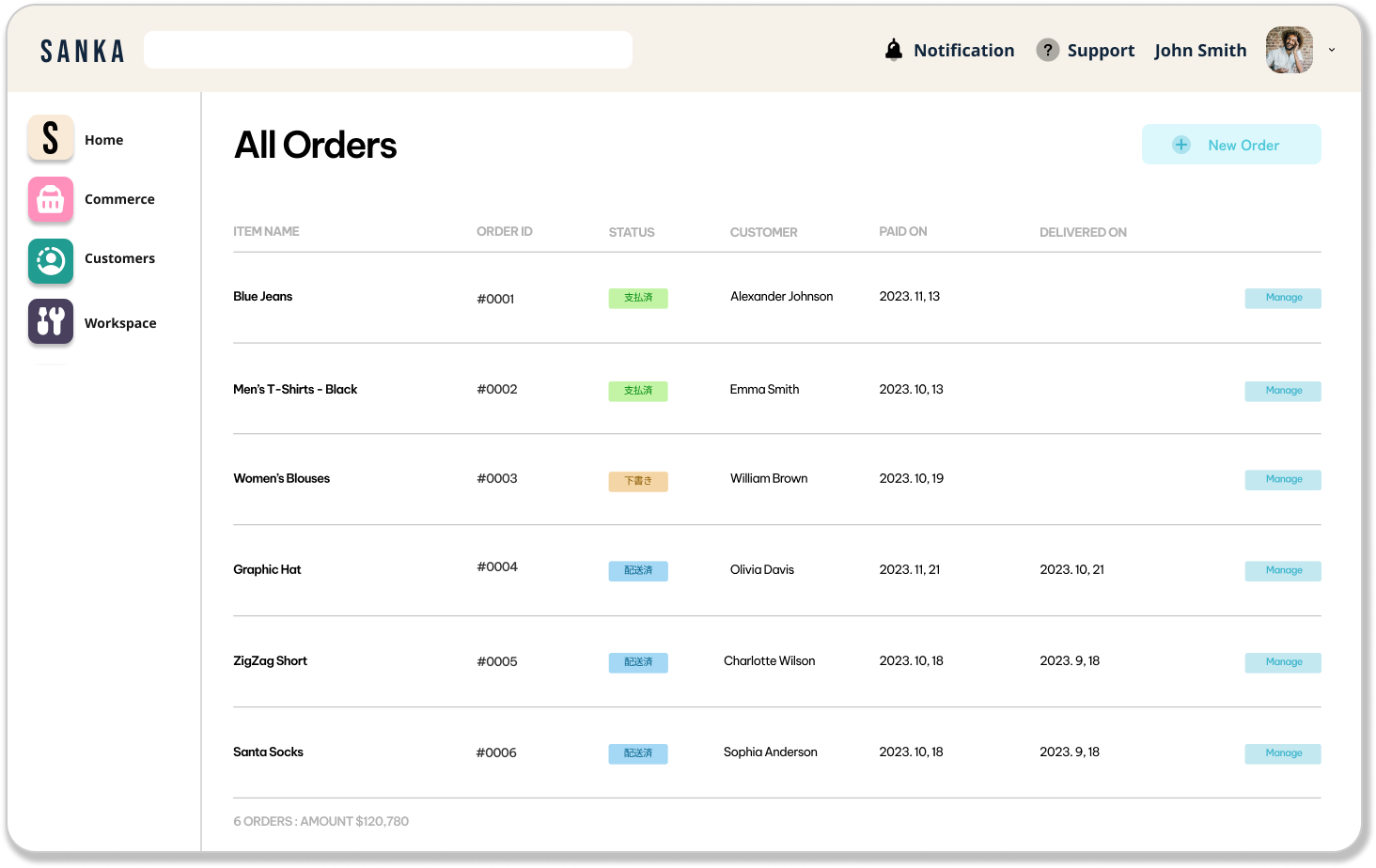This interview features Mr. Harai, CFO of Colopl, Inc., and Mr. Kim, the representative of Sanka Inc.
Kim: Thank you for taking the time to join us today!
In this interview, we have Mr. Harai, CFO of Colopl, Inc., who is also the Director in charge of marketing and the IEO preparation office at the group company Brilliantcrypto, Inc., which handles the blockchain game "Brilliantcrypto." Thank you for being here.
Harai: Thank you for having me.
About Brilliantcrypto
Kim: Let's start the interview by having you briefly explain the overview of Brilliantcrypto.
Harai: The background of its establishment goes back to early 2022 when STEPN* started to become quite popular in Japan. The smartphone game market was quite mature, and we were attracted to the new genre of "Play to Earn" games.
*STEPN is a "Move to Earn" blockchain game that combines location information with NFTs.
Since its founding, Colopl has focused on delivering unprecedented experiences using the latest technology. Leveraging the new technology of blockchain, we thought we could offer a new experience with Play to Earn, which led to the creation of Brilliantcrypto.
Play to Earn games became temporarily popular, but we believe that the sustainability of the game is crucial. For instance, early entrants might profit, but the value doesn't sustain for later entrants, creating an impression of a Ponzi scheme, which is an area we think needs improvement.
Our project, Brilliantcrypto, aims to address this issue.
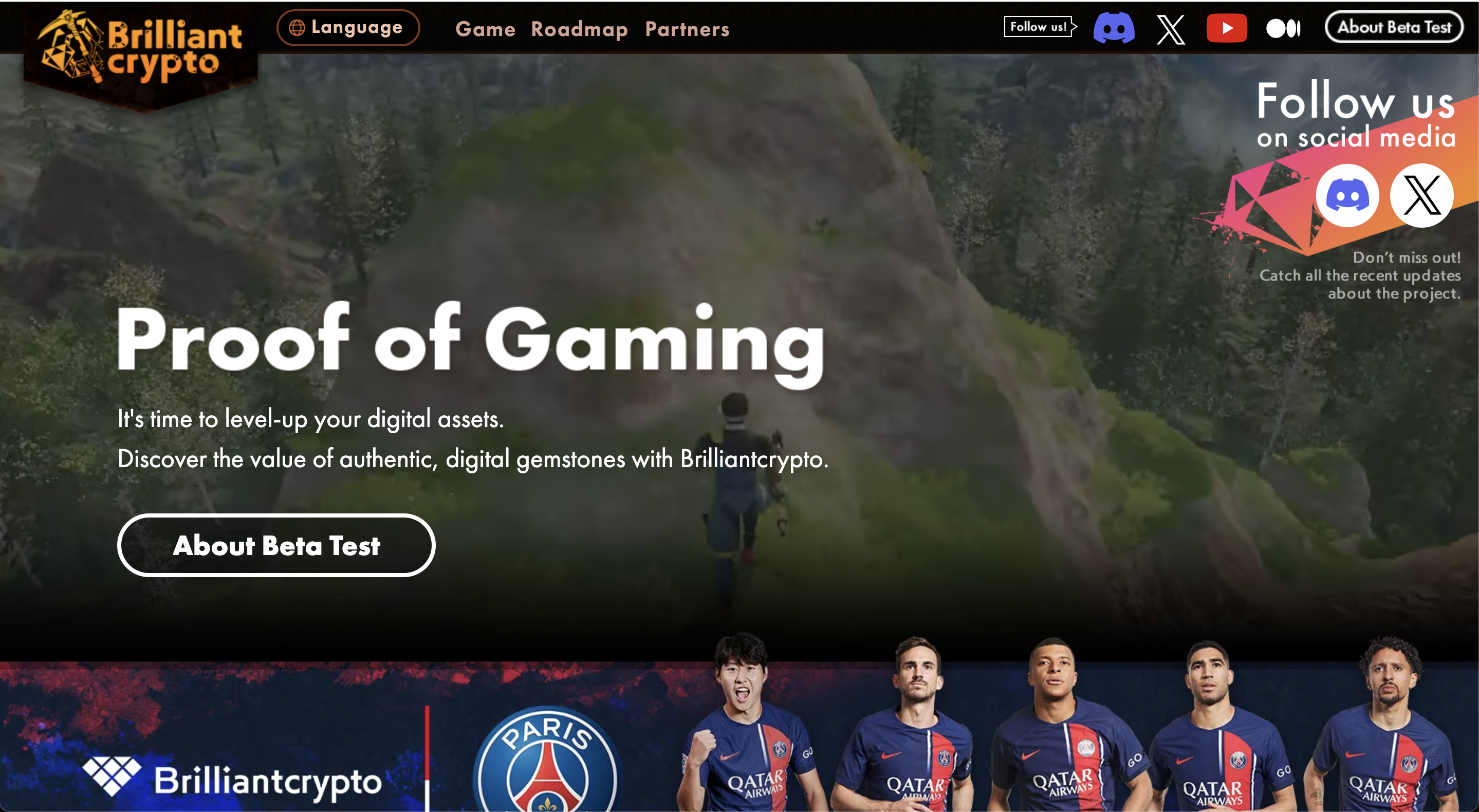
The concept of this game is "Proof of Gaming."
Inspired by Bitcoin's Proof of Work, the idea is that playing the game itself becomes mining, creating value (producing NFT jewels). We aim to create a sustainable Play to Earn game using this mechanism.
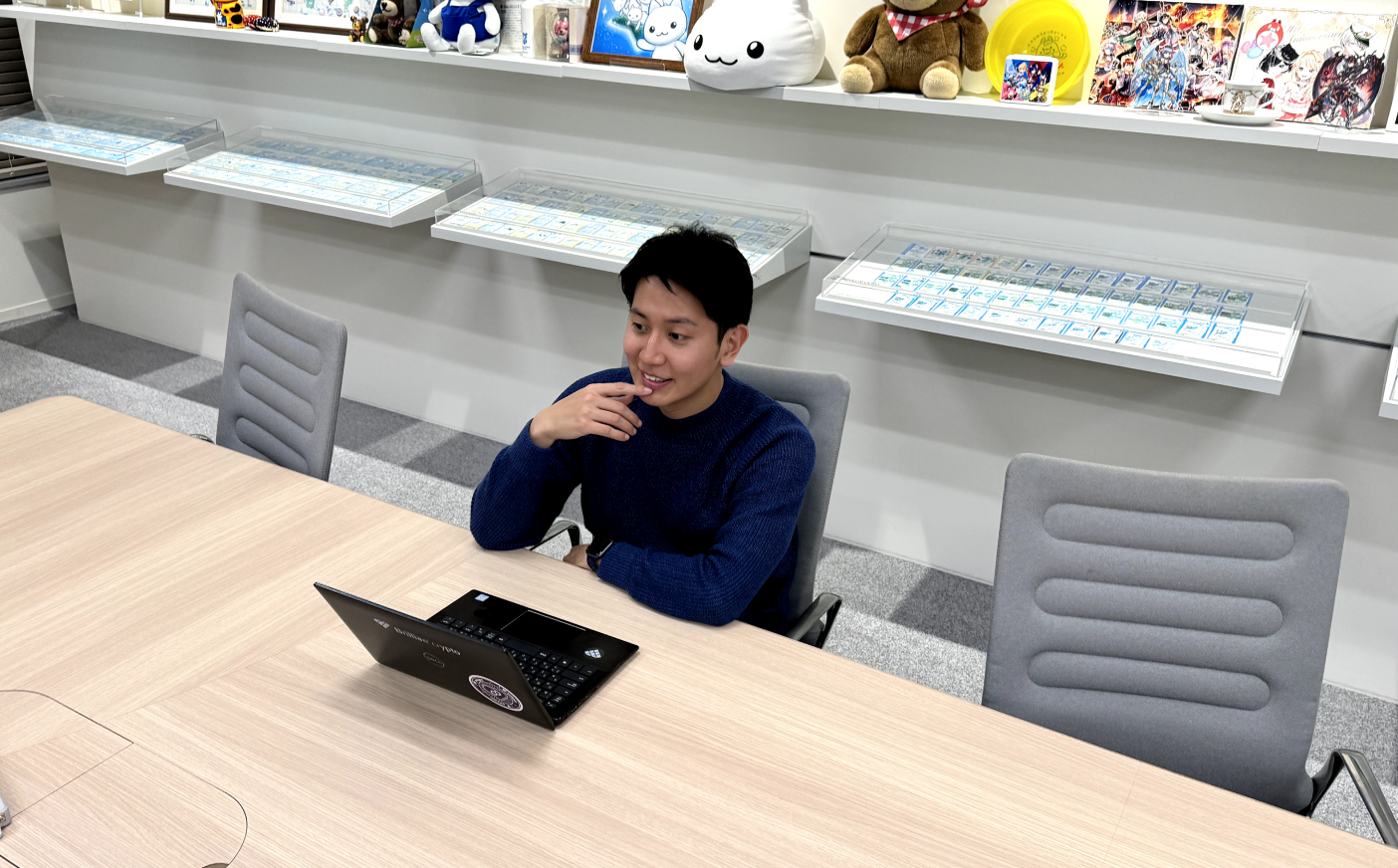
Colopl's Web3 Strategy
Kim: Thank you. That's fascinating. Even though I've been involved for a long time, hearing it again, the concept is really interesting.
With the release approaching, could you tell us about the current number of users and the size of your community?
Harai: Our project was announced at the WebX event in Japan last July, and since then, we have been building our community. Currently, we have over 30,000 followers on both X (formerly Twitter) and Discord. Although the game hasn't been released yet, we believe the numbers are comparable to other Web3 titles in Japan.
Specifically, about 20-30% of our users are domestic, while 70-80% are from overseas, positioning our project as a global initiative despite being developed by a Japanese company.
Kim: I see. Could you share the roadmap leading up to the release and post-release?
Harai: Yes, we plan to release the game around this spring, with our own token issuance (IEO) targeted for around the same time.
Since WebX, less than a year ago, we have been raising awareness and building a community within the Web3 industry. Post-release and IEO, we aim to expand beyond the Web3 community to reach Web2 users globally, allowing people worldwide to create digital jewels in the game.
Kim: That's exciting!
As a publicly traded company in Japan, Colopl's approach to Web3 projects, such as token issuance, seems quite unique. What challenges have you faced?
Harai: Developing blockchain games and dealing with the decentralized nature of Web3 and the financial aspects of a Play to Earn game have been challenging. It requires balancing the game's fun factor with financial elements, ensuring it's not too easy but also engaging.
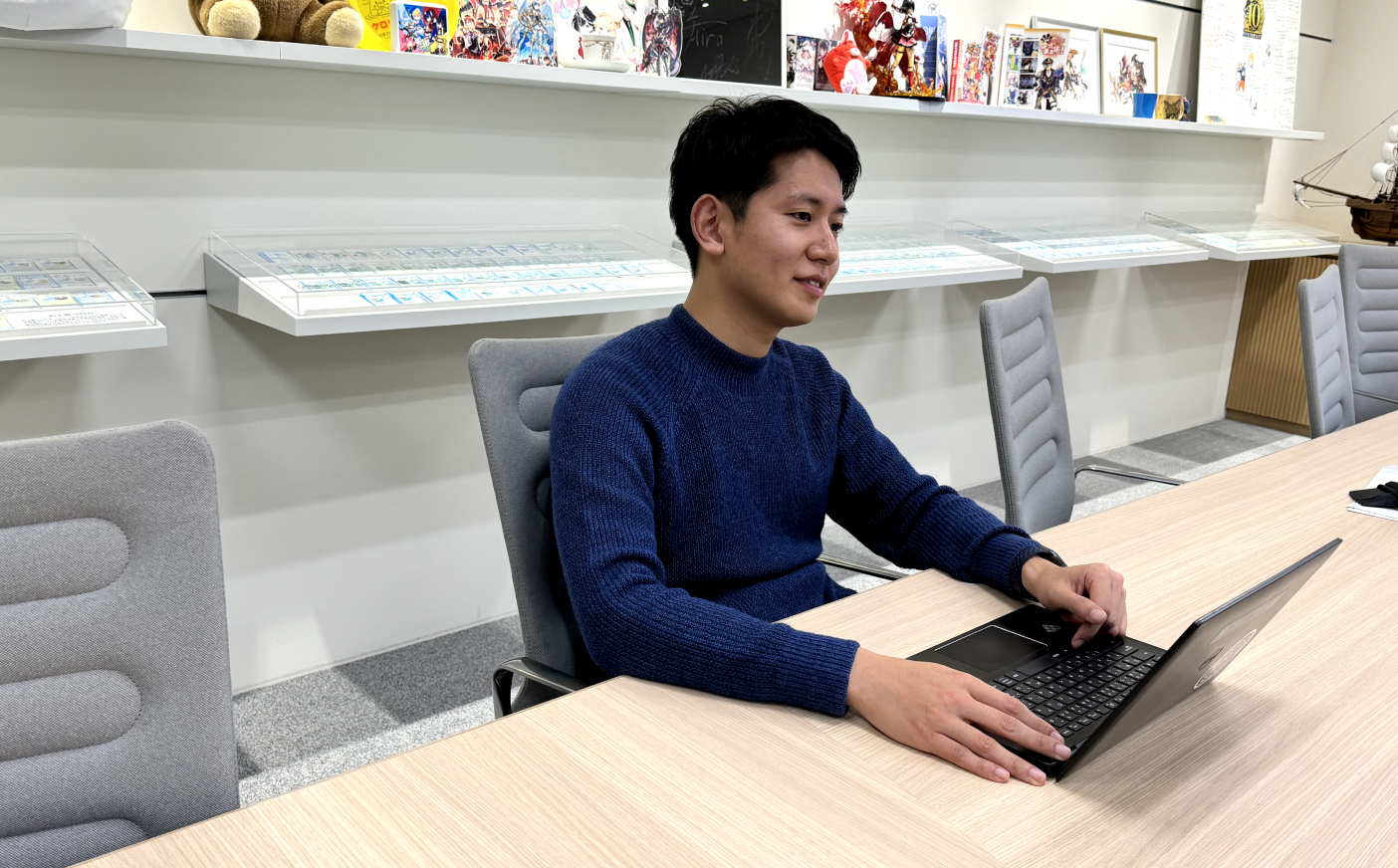
The Essence of Community Building is to Bring Joy
Kim: Absolutely. Creating a hit blockchain game hasn't been systematized or developed into a know-how globally yet.
Can you share how Brilliantcrypto built its community from scratch?
Harai: At Colopl, regardless of whether it's Web2 or Web3, our focus has always been on making our customers and users happy.
Colopl has been in the business since the early days of smartphones, with long-running titles like "Quiz RPG: The World of Mystic Wiz" and "White Cat Project" that have been around for about ten years. Throughout this time, we've consistently worked on delighting our customers.
I believe community management is essentially the same. Understanding what users want, how to make them happy, and keeping them interested is crucial.
Our current community managers have extensive experience in game management and have always prioritized the user's perspective, which is key. While there are differences between domestic and overseas markets and between Web2 and Web3, fundamentally, it's about excelling in game management.
Kim: That's very insightful. How do you determine what makes users happy?
Harai: As a company, our vision is that providing new experiences that don't yet exist will make users happy.
Since it's a "new experience," users themselves might not realize what they want. For example, before the iPhone existed, no one could say they wanted an iPhone. But once it was available, people recognized its convenience and wanted it.
So, it's crucial to pursue "new experiences" and return to this vision even before analyzing data or gathering user feedback.
Kim: I understand.
Harai: However, with online games, you always get user feedback. After an event, you can see how many hours were played, how many items were bought, and the retention rate.
In that sense, we constantly face data. Before releasing the game, it's about delivering "new experiences," but once the game is out, it's crucial to face the user feedback head-on. In other words, "be honest with the results."
Kim: That's a great phrase.
Harai: If users say it's good, then it's good, and the data will reflect that. Conversely, if the results are bad, no matter how creative or interesting we think it is, if users find it boring, it's not good.
Creating something new shouldn't be abandoned, but accepting feedback from the released product is essential. Therefore, we are very meticulous about data and graphs within the company.
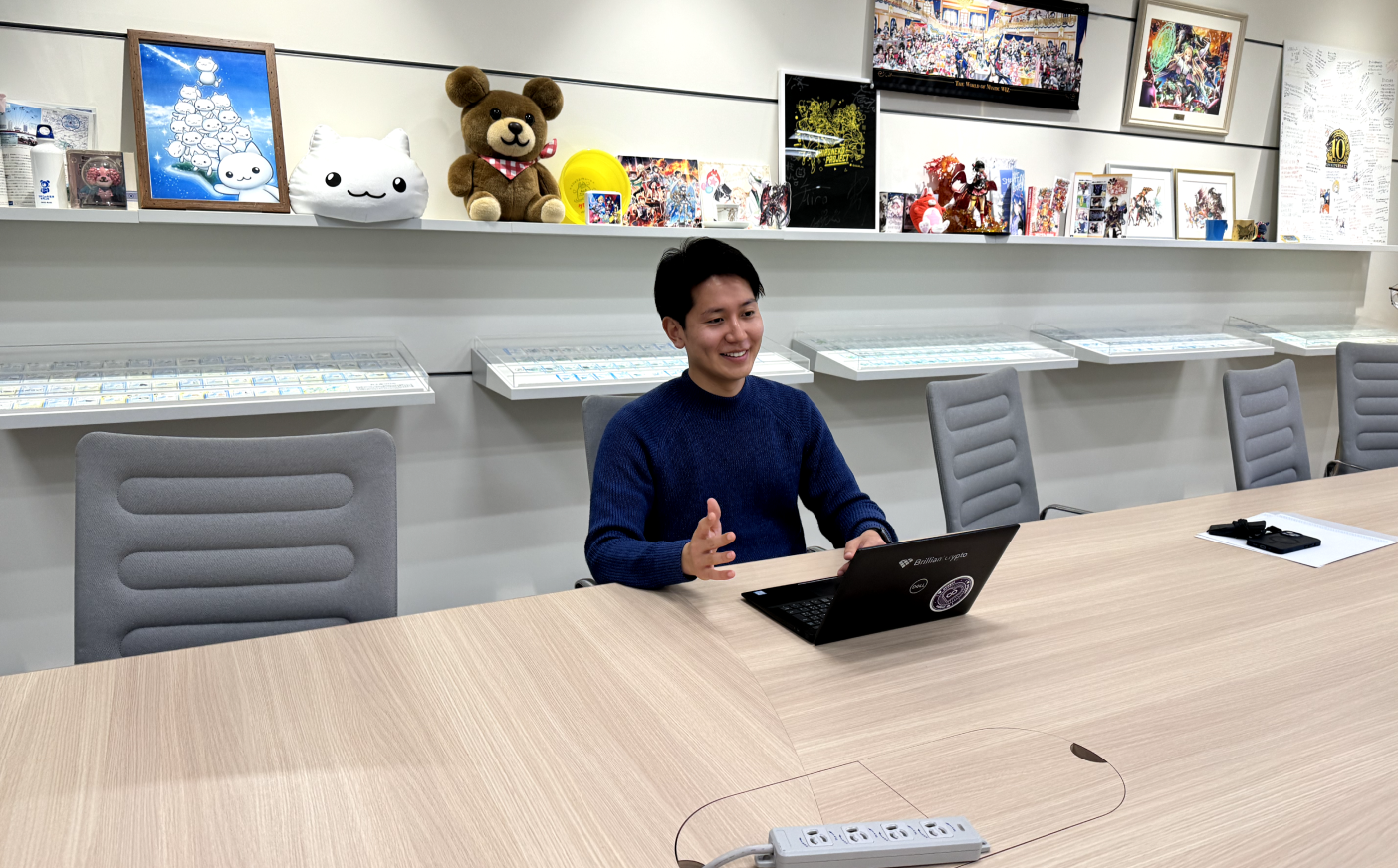
Collaboration with Sanka
Kim: You're using both sides of your brain. That's impressive.
We've been working together for about a year now, and I'd like to hear your feedback on our services. What has been good, and what could be improved?
Harai: The best part of working with Sanka is your commitment to the project as if you were internal members, not just external advisors. You've accompanied us on overseas business trips and supported our recruitment efforts. I only wish you weren't so busy, so we could ask for even more support.
Kim: Thank you. I appreciate it.
We've been assisting with marketing, strategy, sales, and partnerships, among other areas. Which area do you have the highest expectations for in the future?
Harai: While continuing to help with overall planning, as we expand further globally, especially with token listings, minting, and distribution ahead, we still have many areas to explore. I hope you can continue to provide guidance and support in these areas.
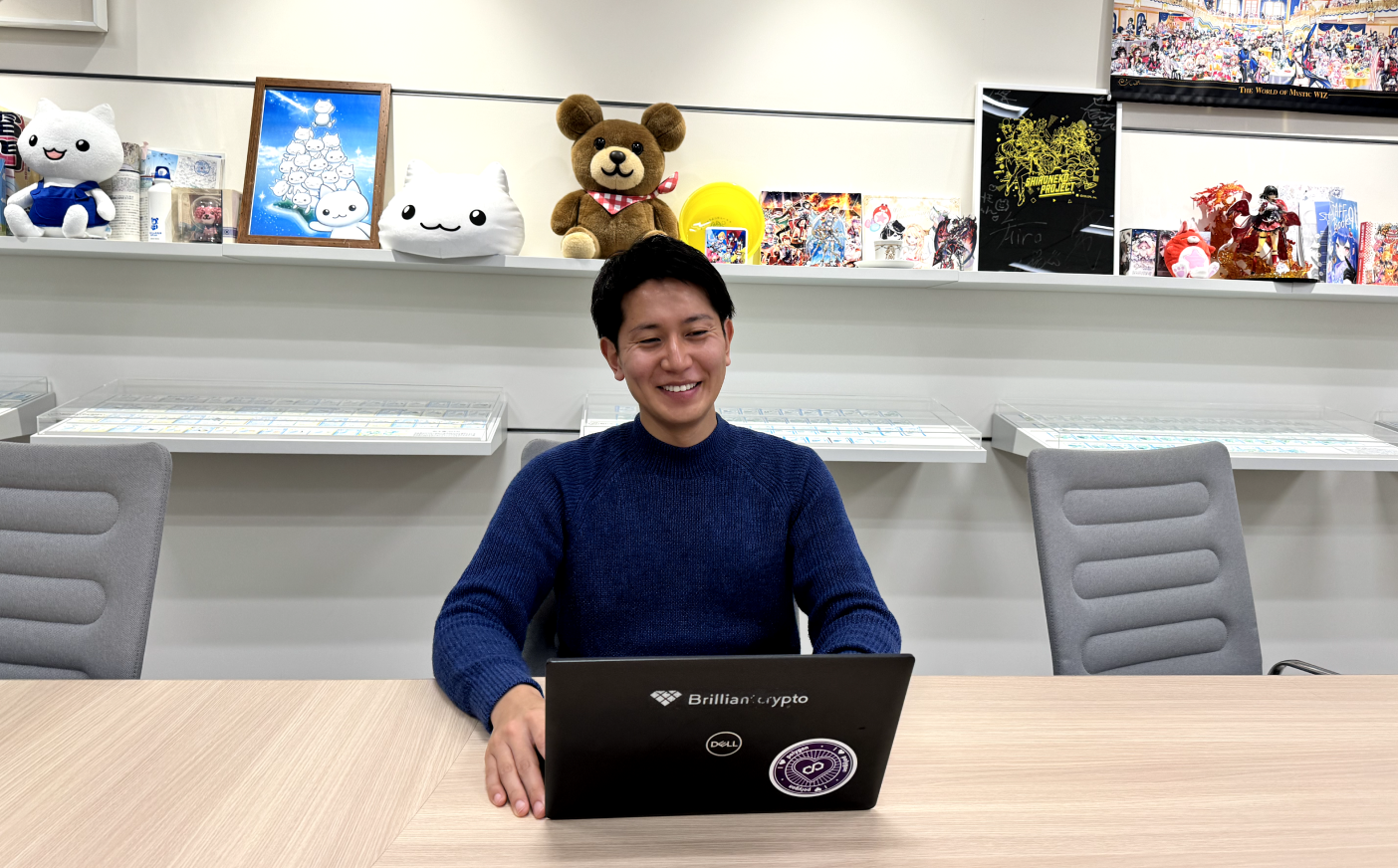
Future Prospects
Kim: Let's work hard together!
Finally, could you share your thoughts on the Web3 industry, including your future outlook and aspirations?
Harai: Several blockchain game market reports predict that the market will exceed 3 trillion yen by 2025. We aim to be a leading player in this market.
While market growth is expected, the key to reaching the general public will be the emergence of killer content. Just like with smartphones, it's not just about the hardware but also the captivating software that accelerates hardware adoption.
Given that "money" and "games" are areas of high interest for many people, providing high-quality game content can help boost both blockchain games and the Web3 space overall. While market forecasts are just predictions, it’s essential to work hard at the forefront to achieve these goals.
Kim: That was very convincing, coming from Colopl, which has led and revitalized the smartphone game industry.
Lastly, could you give some advice to those considering launching a Web3 project or starting a blockchain game business?
Harai: While I'm not in a position to give grand advice, I can say that there aren't many fields where Japan can compete globally. Web3 could be one of those fields.
Unlike the strict regulations in the U.S., Japan has been relatively quick in rule-making compared to other countries. With the country adopting Web3 as a growth strategy, we have a rare environment and opportunity for public-private collaboration to capture the global market.
The industry is still small and in its early stages, so rather than competing, it's about growing together. Although there will be challenges, I hope we can all work excitedly to carve out this market.
Kim: That’s an inspiring vision. Thank you for sharing your valuable insights today.
Harai: Thank you very much.
